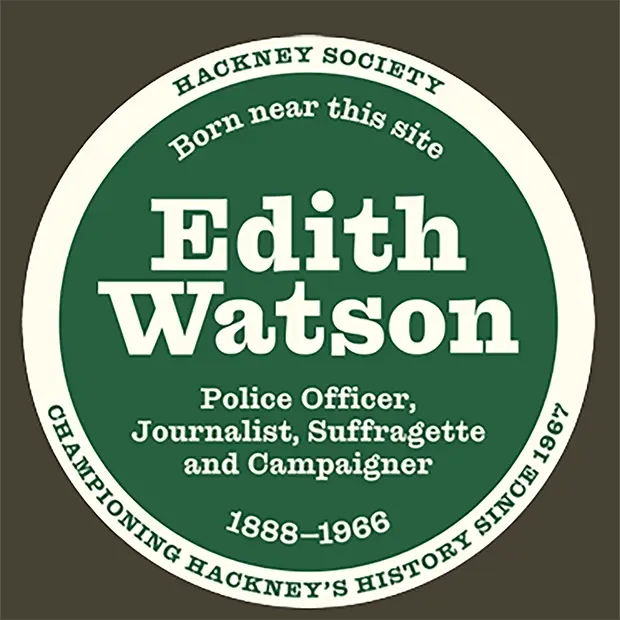The first in a series of new plaques to celebrate the under-represented women in Hackney history will commemorate Edith Watson, campaigner for women and social justice.
Watson (1888 – 1966) was a suffragist, journalist and one of the first women in Britain to become a police officer. Born in the Hackney Union Workhouse to a single mother, she grew up sewing buttons onto shirts to contribute to the family’s income.
The Hackney Society has started the new scheme as women they believed worthy of plaques were being turned down by English Heritage for “not being famous enough”.
The Society aims to crowdfund to help fund Watson’s, which is to be unveiled at a public event with the group’s members and local community leaders.
Janet Chapman, chair of The Hackney Society, talks about the importance of celebrating local women: “You can’t understand history or learn from it unless you know what over half the population are up to.”
“Women are still emerging into the limelight – it’s not that they weren’t doing anything – it’s that it wasn’t deemed important enough to record.”
Active in the Suffrage movement, Watson wrote columns for the Daily Herald and reported for The Vote, the Women’s Freedom League newspaper.
She wrote about the double standards of the justice system, highlighting how a sex worker may get nine months in jail for soliciting, whilst a man guilty of harming a woman may only get a sentence a third as long.
Driven by her own experience of attempted sexual assault, she campaigned for women to be allowed to serve as police officers and court officials.
The Hackney Society aim to create two plaques a year. There are plans afoot to commemorate cinema owner Clara Ludski and actress Cleo Sylvestre with help from local designers Alice Sherwin and Harry Bennett of Studio Ground Floor.
Creating the plaques are ceramicists Ned Haywood and Julia Land, who also make plaques for English Heritage.


